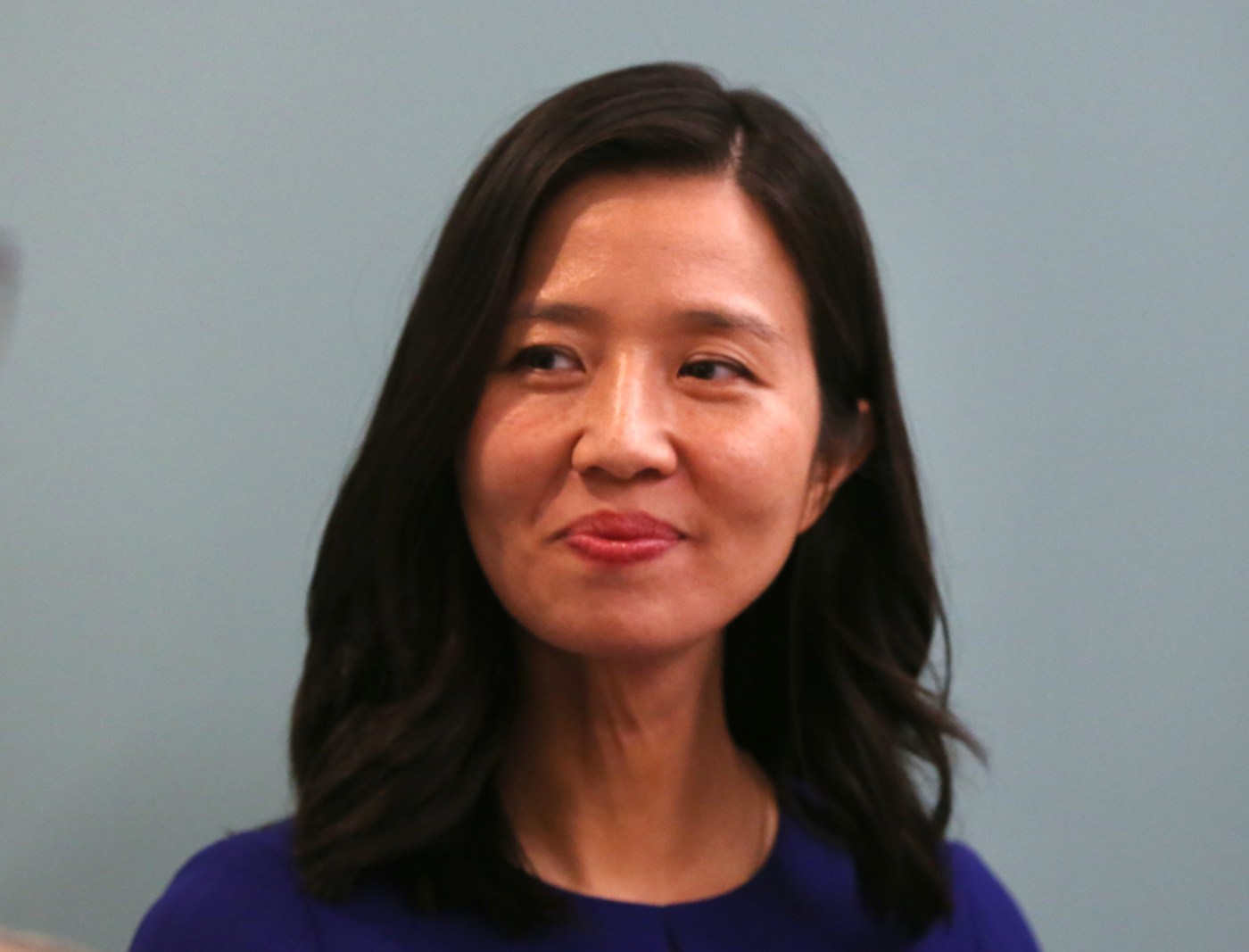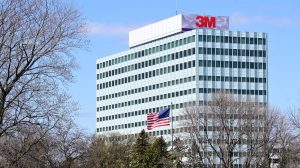
Watchdog warns Boston Mayor Wu’s plan to hike business taxes could hurt city’s economy
A fiscal watchdog is cautioning Mayor Michelle Wu against moving forward with her plan to raise property taxes on Boston businesses beyond the state limit, saying that there are better alternatives that won’t hurt the city’s economy.
The Boston Municipal Research Bureau released a new report Thursday that contends the city’s financial position is better than the last time it implemented a nearly identical plan two decades ago, and other approaches can therefore be taken to stave off projections of a steep increase in residential property taxes next year.
The mayor’s push to shift more of the tax burden from the residential to commercial sector for the next four years would not only affect commercial building owners, the report contends, but would have a trickle-down effect if landlords were to push some of that property tax increase onto tenants through higher rental costs, thereby “making their businesses and the city less competitive.”
“It is crucial for the Wu administration to adopt a cautious approach and reassess strategies for fiscal stability for all property owners,” the report states.
“Given the uncertainty of the economy and the recalibrating of the real estate market, and the key role that businesses and business property play in the city’s fiscal stability, now might not be the time to further burden business owners, and by extension, their tenants, that include restaurants, retail shops and small family-owned operations.”
The mayor’s home rule petition, currently before the Boston City Council, is responsive to projections laid out in an earlier watchdog report from the Boston Policy Institute, which found that the city’s eroding commercial tax base could leave it with a more than $1 billion budget shortfall in five years — unless the city were to raise residential property taxes by 30% or cut the budget by 10%.
If approved by the City Council and state lawmakers, the petition would provide a statewide option allowing municipalities to shift more of the tax burden from residents to businesses, exceeding the state cap of 175% up to 200% in the next fiscal year that begins July 1. The tiered shift would decrease each year before returning to the standard state limit in fiscal year 2029.
The plan, which faces stiff resistance from a commercial sector struggling with declining property values and vacant office space, mirrors what was proposed by former Mayor Thomas Menino in late 2003 and implemented early the next year when it was signed into law by the governor.
The report contends, however, that the city’s financial position, bolstered by a strong bond rating, healthy surplus fund balance, and new growth, is better than it was two decades ago, and provides for immediate alternative options to combat the effects that a decline in commercial property tax revenue could have on the budget.
Marty Walz, interim president of the Boston Municipal Research Bureau, also said at a City Council committee hearing weighing the mayor’s plan last month that Menino made “notable cuts” in spending when introducing his proposal, something the Wu administration, which proposed an 8% budget increase for next fiscal year, has not done.
In the short term, the report states, the city could prevent or reduce a large increase in residential tax bills by using savings from its $1.1 billion-plus budgetary fund balance instead of relying on business properties, which already contribute roughly a third of the city’s annual property tax revenue, and a tax classification shift.
Related Articles
Boston City Council approves petition to slash fire cadet training
Boston City Council approves Gaza cease-fire resolution over objections of Jewish community
Boston City Council looks to crack down on hotel prostitution, drug use
Boston city councilor edits out Israeli ‘genocide’ accusations in toned down cease-fire resolution
Boston Mayor Michelle Wu’s talk at Harvard canceled due to Emerson encampment response
The report also urges the mayor and City Council to “tame the budget,” control school spending which is the largest budget expenditure, and manage employee levels, with an eye toward streamlining and delivering services more efficiently.
In the longer term, the mayor should explore additional tax options through a home rule petition to decrease the city’s reliance on property taxes, which are expected to contribute roughly 71.1% of annual budgetary revenue next fiscal year compared to 55.6% in FY04 when the tax shift was last implemented, the report states.
It also makes a pitch for a higher residential exemption through a home rule petition effort that would lower taxes for homeowners.
The Wu administration has stated it won’t cut the budget, but the mayor said the city has been focused on lobbying for a new tax on Beacon Hill, a real estate transfer fee that would tax big-ticket sales over $2 million at 2%. Like her latest tax plan, it has faced resistance from industry groups.
The mayor’s office did not respond to a request for comment.

